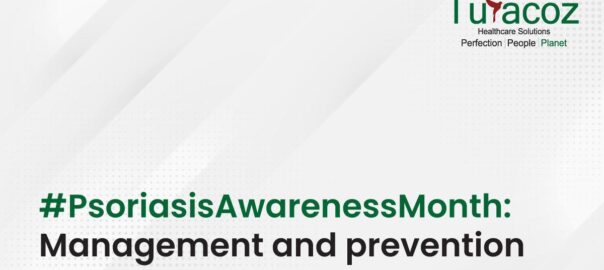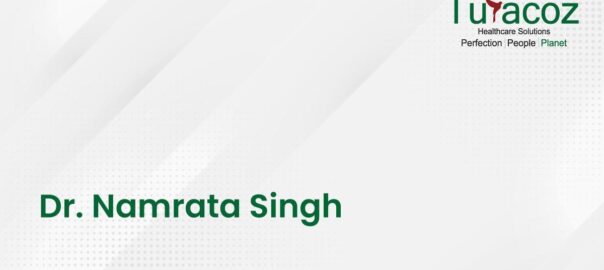Psoriasis is not all of you, it is just a part of you like everything else
Psoriasis is generally classified based on the severity of the disease from mild to severe with a Psoriasis Area Severity Index (PASI) scale. Based on this severity index treatment is given to the patients.
The score comprises of 3 features of psoriatic plaque:
- Redness
- Scaling
- Thickness, which are assigned a number from 0 (none) to 4 (worst).
The extent of involvement of each region of the body (12 regions) is scored from 0 to 6. The total score is a range of 72. There are many studies that quote the improvement with this index which help to know the drug’s effectiveness. For example, if a patient cleared 75% of his psoriatic lesions then it is described as “PASI 75”. These scores are used by clinicians to follow their patient’s progress.
Psoriasis Management:
Some general recommendations for treatment of psoriasis,
- Topical application of corticosteroids in the form of ointments, creams, gels, liquids, sprays etc. Example: Keratolytics and calcipotriene, others include anthralin and tars.
Over-the-counter topical medications include, salicylic acid foams or ointments, Coal tar, Zinc pyrithione.
- UVB is a safe, effective and cost-effective.
- PUVA (psoralen plus ultraviolet A) is also an effective treatment.
- Conventional treatment methods:
- Usage of methotrexate, which is an effective therapy in the majority of patients but has the potential for hepatotoxicity and is contraindicated in some situations.
- CyA (cyclosporine), another immunosuppressive medication, also an effective treatment for psoriatic patients.
- Acitretin, a systemic agent which is effective and used for the treatment of psoriasis.
- Biological agents are proteins that are extracted from animal tissue or can be produced by recombinant DNA technology that possesses pharmacological activity.
- Few biologics that target pathogenic T cells include Alefacet and Efalizumab.
- Few other biologics target TNF inhibitors for the treatment of psoriasis include Adalimumab Etanercept, and Infliximab.
Psoriasis can also be managed by education and advocacy. Also should promote awareness and understanding of the disease, ensuring access to treatment and supporting research that can lead to effective management.
Psoriasis Prevention:
Psoriasis is a chronic disorder that requires long-term monitoring for treatment response, adverse events and new comorbidities. Also there is a poor adherence to treatment to obtain good results for patients with psoriasis. Hence, there is no way to completely prevent or avoid the occurrence of psoriasis instead taking some precautionary steps can improvise the symptoms and help reduce number of psoriasis flare-ups. Few preventive measures that a psoriatic patient can do to reduce the flare ups.
- Taking care of the skin, scalp, and nails and other areas where psoriasis can spread.
- Trying some psoriasis creams or ointments that can keep the body moisturized all the time.
- Taking sunbath for some time also helps in reducing the psoriatic skin cells.
- Try to avoid few medications which can flare up the disease.
- Psoriasis can spread easily in cold, dry climates and it is always better to avoid such environmental conditions.
- Quit smoking and reduce alcohol consumption.
- Lifestyle interventions where symptoms can get worse with stress and anxiety so need to avoid such situations. To avoid such conditions patients can start their day with yoga, meditation, and other exercises.
- Taking a well-balanced diet.
Some health tips to bring symptom relief:
- Keep the skin moist all the time by applying moisturizers
- Take warm bathes that helps in skin soothing
- Expose the body to small doses of ultraviolet light in the sunlight
- Do not irritate or scratch the psoriatic skin patches
- Limit intake of alcohol and stop smoking
- Start the day with stressbusters like yoga or meditation to relieve from tensions and emotions
- Consider some dietary changes by reducing the intake of sugars, white flour, gluten, caffeine, oils etc.
Diagnosis of psoriasis is not the end but the journey continues with normal ups and downs as with anyone else. Having a disease is not a battle lost but losing hope is defeat. So keep up hope and there are answers to every problems and let’s keep finding them and spreading them.
Turacoz Healthcare Solutions is a socially responsible medical communication company which delivers high quality medical content related to scientific publication (manuscript, review, poster, abstract, case report), regulatory documents (protocol, CSR, narratives, clinical trial disclosure, web synopsis) and marketing documents (print and digital).



